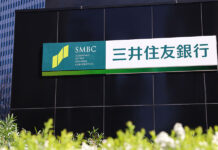With the Japanese government actively implementing tax reforms, easing restrictions, establishing special national strategic zones and offering foreign investors various preferential policies, more and more Chinese investors have turned to Japan. This article discusses the paths of investment in Japan in light of the country’s corporate legal system. Chinese companies generally invest in Japan by the following means: setting up branch companies; establishing new subsidiaries; merging with or acquiring other Japanese companies (referring to unlisted companies herein).

FENG JIANJIAN
竞天公诚律师事务所
合伙人
Partner
Jingtian & Gongcheng
Setting up branch companies. According to Article 818 of Japan’s Companies Act, foreign investors should go through registration in Japan before carrying out continual business activities. Specifically, setting up a branch company is the easiest way for a foreign business to establish presence in Japan as the branch company can immediately start business operations once its representative is finalized and necessary matters are registered. A branch company established in Japan is not qualified as an independent legal person in terms of the law, and its claims and liabilities should ultimately be attributed to the headquarters, which is the same with PRC Company Law.
Establishing new subsidiaries. To establish a subsidiary in Japan, a Chinese company may choose from various legal person forms such as kabushiki kaisha (KK, or joint-stock company) or gōdōgaisha (GK, similar to limited liability company) according to Japan’s Companies Act. Compared to GKs, it is easier to conduct business and raise funds through KKs thanks to their higher public credibility, so Chinese enterprises choose to set up KKs under most circumstances. A subsidiary is qualified as an independent legal person – it is independently responsible for its claims and liabilities and its shareholders are liable to the extent of their statutory contribution. Chinese companies often use their Japanese subsidiaries to establish joint ventures with local Japanese companies, or invest in Japan by having their Japanese subsidiaries invest in Japanese companies.
You must be a
subscribersubscribersubscribersubscriber
to read this content, please
subscribesubscribesubscribesubscribe
today.
For group subscribers, please click here to access.
Interested in group subscription? Please contact us.
你需要登录去解锁本文内容。欢迎注册账号。如果想阅读月刊所有文章,欢迎成为我们的订阅会员成为我们的订阅会员。
Feng Jianjian is a partner at Jingtian & Gongcheng. He can be contacted on +86 21 2613 6221 or by email at feng.jianjian@jingtian.com
Zhang Bo is an associate at Jingtian & Gongcheng. He can be contacted on +86 21 2613 6299 or by email at zhang.bo@jingtian.com




























